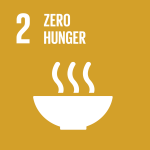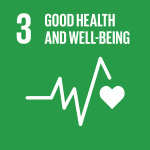Click here to view this photo essay in full on Exposure.
“The sea is our identity and how we define ourselves and how we trace our roots, cultures, and traditions.” HE Te Beretitenti Taneti Maamau, President of Kiribati
Located in the center of the Pacific, with a population of around 117,000, the Republic of Kiribati is known for being one of the world’s smallest and most remote island nations.
In fact, it is remarkably large: 33 atoll islands spread across an ocean territory of more than 3.5 million square kilometers. The vast waters – one of the world’s biggest Exclusive Economic Zones – constitute some of the richest and most diverse ecosystems on Earth, supporting hundreds of species as well as the livelihoods, health, culture, and way of life of local people.

Millennium atoll, Kiribati. Credit: Roderick Eime (Flickr Creative Commons)
CLIMATE CHANGE IMPACTING KIRIBATI
In the global narratives about climate change, island nations such as Kiribati have been seen as ‘poster children’ for the risks of a warming planet.
And with good reason. Sea-level rise, more days of extreme rainfall and heat, and ocean acidification have existential implications for communities living on narrow sandy land often less than one meter above sea level.
Climate change impacts are immediate and tangible along Kiribati's coasts. Erosion and king tides driven by sea-level rise are already damaging coastal infrastructure, food crops, and freshwater – resources already strained by population growth, pollution, and unsustainable fishing.
The consequences of ocean warming are particularly concerning, with many families reliant on fragile marine ecosystems for food and an income – and Kiribati’s greater economy heavily dependent on life underwater.
A PROACTIVE APPROACH TO ADAPTATION
In 1999, the government was already expressing grave concern about the impacts of sea-level rise.
Since then – and despite limited resources – successive governments have taken a proactive approach towards building resilience, while also advocating for global climate action.
More than fifteen years ago, a Climate Change Adaptation Strategy recognized the need for many ministries and agencies to be involved in strengthening the country's ability to handle the impacts of climate change. In 2007, Kiribati was one of the first Pacific island states to complete a National Adaptation Programme of Action, setting out a comprehensive plan for addressing the country’s most pressing priorities.
In addition to a Climate Change Policy, National Framework for Climate Change and Climate Change Adaptation, and Joint Implementation Plan for Climate Change and Disaster Risk Reduction, the issues have also been woven into development policies and strategies, including Kiribati’s long-term development blueprint 20 Year Vision KV20 (2016 to 2036).

Addressing the impacts of global climate change is central to Kiribati’s environmental and development agenda and the country has a strong policy framework around adaptation. Credit: Anne Erica Larsen/UNDP
ADDRESSING THE CHALLENGE OF FOOD SECURITY
In 2016, with the backing of the Global Environment Facility-Least Developed Countries Fund and UN Development Programme, Kiribati launched a five-year initiative to specifically address the issue of declining coastal ecosystems and food security.
Led by the Ministry of Environment, Lands and Agricultural Development with nine government departments as co-implementers and the close involvement of communities, the project has focused on the three islands of Maiana, Nonouti, and Abemama, seeking to improve the management of fisheries while also building communities’ coping capacities.
Despite some setbacks due to COVID-19 travel restrictions, the project has been making great strides.

Multiple government ministries have been involved in implementing the project, including the Office of the President; Ministry of Environment, Lands and Agricultural Development; Ministry of Fisheries and Marine Research Development, Ministry of Internal Affairs; Kiribati Meteorological Services; Ministry of Education; Ministry of Commerce, Industry and Cooperatives; and the Tourism Authority.
ENHANCED DISASTER EARLY WARNING
With the support of the project, the Meteorological Service of Kiribati and New Zealand’s National Institute of Water and Atmospheric Research (NIWA) have installed an automated weather station on each of the three islands to capture and transmit real-time weather data, as well as strengthened national capacities and software for weather data, analysis, forecasting, and early warnings.
Almost the entire population of the three islands is now covered by an enhanced early warning system, with full nationwide radio coverage of weather forecasts and warnings issued by the Meteorological Service. Weather data is immediately available to communities.

Installing an automatic weather station on Abemama island.
LIFE BELOW WATER
Much of the project’s work has focused on improving the sustainability of Kiribati’s coastal marine resources and helping fish populations to stabilize or regenerate.
In an important step forward, the Ministry of Fisheries & Marine Resources Development has developed a national Fisheries Regulation on the Conservation and Management of Coastal Marine Resources (2019), setting out key conservation and management measures, with an emphasis on the role of communities. The national regulation bans fishing methods that are considered harmful nationwide.
By-laws, crucial for the enforcement of the regulation, have been prepared by Island Councils under the Ministry of Internal Affairs and are now pending endorsement. Moreover, 10 communities have developed community-based fisheries management plans and established fish recovery zones.
National consultations and community outreach are ensuring local awareness and observance of fisheries regulations.
To assess and track the status of coral reefs, invertebrates, and finfish, the Ministry has established a comprehensive monitoring methodology. Teams regularly survey fishermen and conduct sampling to assess stocks, fish size, maturity, and behavior.

Community members take part in a consultation on fisheries management, Matang, Nonouti island, 2020
CLIMATE-SMART PLANNING
Under the project, the Ministry of Environment, Lands and Agricultural Development has helped communities to assess their vulnerabilities related to food, water, and disaster risk. Led by the Climate Change Division of the Office of the President, in partnership with Kiribati's National Expert Group on Climate Change and Disaster Risk Management, reports have now been completed for Abemama and Nonouti with the process underway for Maiana. The crucial assessments will be used to inform island development as well as broader national policymaking.
Meanwhile, the project has supported the three islands to prepare Island Strategic Plans. The plans are the foundation for development planning and will help Island Councils and the government to prioritize and seek funding.
Nineteen villages (including all those on Maiana) have put together detailed and practical community-based resource management plans covering the conservation of natural resources including mangroves and fish. With facilitation by island councils and government officers, local men, women, elders, and youth contributed to the plans. The collaborative process will help ensure local ownership of the plans and commitment to implementation.
More than a dozen government officers stationed on the outer islands have been trained in sustainable agriculture (including the production of saplings, composting, livestock, crop monitoring, and seed diversification) and fisheries (including fisheries regulation, by-law consultations, sustainable fisheries training, catch monitoring), completing training in the capital, Tarawa, followed by on-the-job support.
“This project is useful as it teaches us the value of our environment and the importance of preserving and nourishing natural resources, so we can draw on them in times of natural disaster.” – Mayor of Abemama island, Linda Ueanteang

Candidates sitting for Fisheries Extension Assistant recruitment test, Nonouti island, Kiribati, December 2017
EMPOWERED COMMUNITIES
A key pillar of the project has been working closely with communities to increase the availability of local food and vegetables, and to build livelihood skills.
Fishermen, women groups, and youth have taken part in trainings such as cooking and fish preservation; seaweed planting and monitoring; clam and sandfish farming and monitoring; using Fish Aggregation Devices (FADs); community-based management planning, entrepreneurial skills, and financial literacy.
Led by the Tourism Authority, workshops on being a fishing guide, boat safety, first aid, hospitality, handicrafts, and promoting local culture have been geared towards communities developing local eco-tourism potential.
The project has worked with all communities across the three islands to plant more than 15 varieties of indigenous and exotic food crops including coconut, breadfruit, pandanus, fig tree, and swamp taro, and is also providing support to households and schools to boost home gardening.
LOOKING AHEAD
Work continues in 2021. With the support of the project, Kiribati is now developing a national ecosystem-based adaptation guideline as well as a comprehensive database, the Adaptation Monitoring and Assessment Tool, both of which will further strengthen planning and monitoring.
The project is also focused on raising awareness and enforcement of coastal zone fisheries conservation regulations.
Efforts to increase food crops for food security and livelihoods continue, with the project supporting training and providing tools, seeds, and seedlings as part of the National Agricultural Revitalisation Program.
At the same time, with the backing of the GEF-LDCF and UNDP, Kiribati is embarking on a new project to further strengthen national policies, island-level planning, institutional capacities, and a ‘whole-of-island’ approach to adaptation. A new energy project is set to boost renewable energy and energy efficiency on the outer islands.
Meanwhile, under UNDP’s Climate Promise, Kiribati is finalizing its revised climate commitments, or Nationally Determined Contribution, to the UNFCCC.
No longer simply a poster child for climate risks, Kiribati is pushing to meet the challenges, adopting a comprehensive approach to climate resilience.
A Pacific nation rising.
Since 2008, UNDP has supported 43 countries including 7 small island developing states to adopt climate-smart land and water management techniques, to increase access to climate information, and to ensure vulnerable communities receive the support they need to feed their families. Learn more www.adaptation-undp.org



